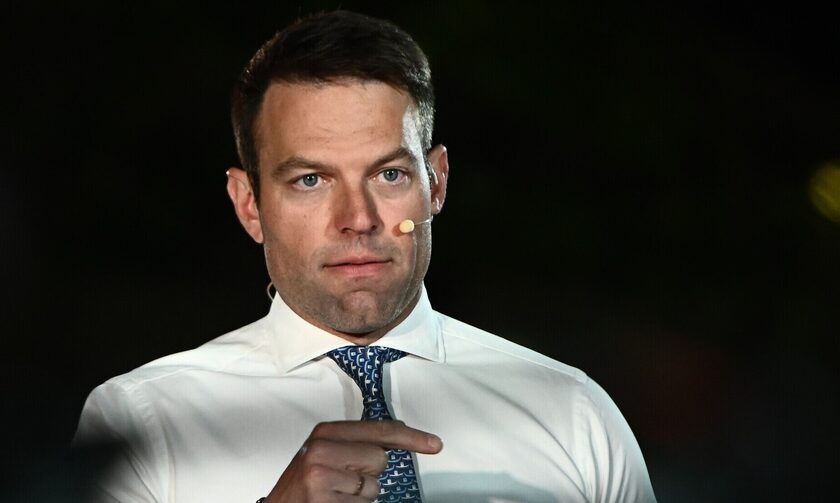Kasselakis: Government lying about Tempi, taxes and 'economic miracle'

Main opposition SYRIZA-Progressive Alliance leader Stefanos Kasselakis sternly attacked the government over its policies in an interview with Financial Times journalist Tony Barber at the 9th Delphi Economic Forum on Friday.
Main opposition SYRIZA-Progressive Alliance leader Stefanos Kasselakis sternly attacked the government over its policies in an interview with Financial Times journalist Tony Barber at the 9th Delphi Economic Forum on Friday.
Kasselakis accused the Kyriakos Mitsotakis' government of "clear lies" regarding incidents such as the Tempi train crash or the surveillance scandal, as well as taxes, where he noted that the government "had promised to reduce taxes before the election and have done entirely the opposite" and "vis a vis this economic miracle that everybody sees right now was essentially marketing."
Commenting on opinion polls, he appeared confident that SYRIZA will close the gap further, even with respect to the current polls, and "shock Europe and the country".
Kasselakis said that the government had not managed to make the Greek economy truly open and that the country is "not yet ready for conditions of recession."
Asked about SYRIZA's political identity and whether it identifies with other European leftist parties, Kasselakis said that this was a matter of "etiquette" which does not concern voters, who are thinking about how they will pay the bills and cover their daily needs. If Greece's economy was working efficiently, he pointed out, "we wouldn't have the most expensive housing in Europe", stressing the need for "radical solutions to big problems".
Asked to comment on the war in Ukraine, he expressed the view that the EU should support Ukraine against Russia's aggressive policy and that Greece has a role to play in this, not by sending weapons, but by providing humanitarian aid or providing access to its ports, but "it is up to other countries to provide the military assistance that is needed", he said.
Finally, regarding the debate on strengthening European defence, he expressed support for a "transition" from the "transatlantic dependence" to the "independence of Europe's military capability".













